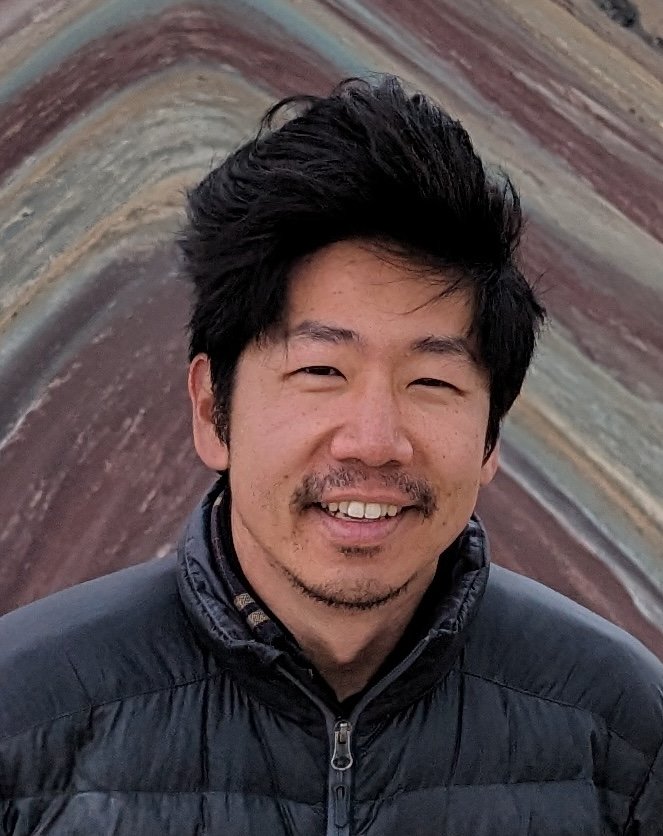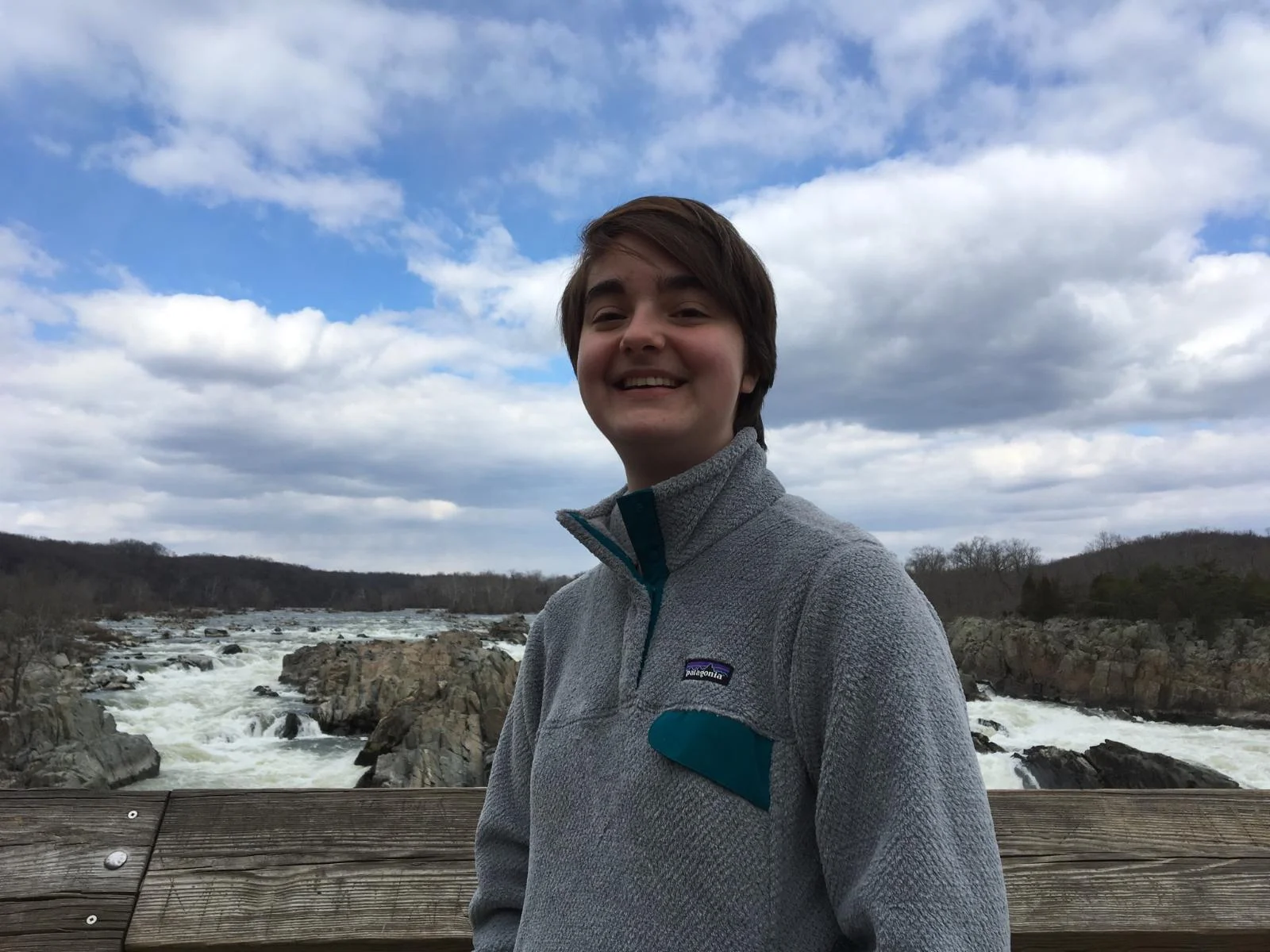Kate E. Langwig, ph.d.
Associate Professor
Kate Langwig is an Associate Professor in the Department of Biological Sciences at Virginia Tech, and an affiliated faculty of the Global Change Center. Kate completed her B.S. at Union College in 2008, and worked for several years with New York State Department of Environmental Conservation. She completed her Ph.D. in 2015 from the University of California Santa Cruz. Kate was a postdoctoral fellow at the Harvard T.H. Chan School of Public Health from 2015-2017 before joining the faculty at Virginia Tech.
Anna Perez-Umphrey, ph.d.
Post-DOC
Anna earned her B.S. in Wildlife Biology at Colorado State University in 2009. She then spent several years working across the country as a field technician, primarily on herpetofauna and endangered species research projects. She completed her Ph.D. in Molecular Ecology at Louisiana State University in 2021 where she studied the long-term effects of the Deepwater Horizon oil spill on coastal saltmarsh wildlife, and hantavirus disease ecology and immunogenomics. She is currently a postdoctoral associate in the Langwig and Hawley labs at Virginia Tech studying heterogeneity in susceptibility using the House Finch – Mycoplasma gallisepticum system. Broadly, her research interests include the ecology and evolution of infectious diseases, conservation genetics, and wildlife biology.
Daniel Suh, PH.D.
POST-DOC
Daniel received his PhD in Ecology from the Odum School of Ecology at the University of Georgia in 2024. In his PhD, he studied the effects of biotic and abiotic factors on the transmission of generalist parasites across multiple disease systems. He is currently studying the transmission of SARS-CoV-2 in wildlife populations.
macy Kailing
Graduate StuDent
Macy joined the Langwig lab as a PhD student in 2019. She earned her BS in Biology with an environmental focus from Ferris State University in 2014 and a MS in Biology from Murray State University in 2018. She has held conservation-related positions at state and federal agencies and hopes her work can be used to guide management decisions. Her research will focus on white-nose syndrome in bats and she aims to better understand heterogeneities in host mortality and long-term population persistence following pathogen introduction. She is also enthusiastic about adopting the One Health framework in the strategic planning of wildlife conservation initiatives.
ellie Timmins
Graduate STUDENT
Ellie graduated with a BS in biology from Pennsylvania State University in 2024 and joined the Langwig lab in the same year. They focus on questions related to wildlife conservation in the face of global change. In undergrad, they studied the potential impacts of climate change on coral survival. Ellie now aims to study how climate change will affect wildlife disease systems, specifically white-nose syndrome in bats.
Lab alumni
Samantha Hoff
PostDOCTORAL FELLOW
Samantha joined the Langwig lab in May 2023. She received her PhD from U Albany in 2023 and worked with NYDEC during the duration of her degree. Her PhD research focused on the coastal refuges as possible locations for northern long-eared bat persistence. In the Langwig lab, She studied temperature-dependent selection of bats persisting with white-nose syndrome.
ALEX GRIMAUDO
Graduate Student NOw POSTDOC AT CDC
Alex began his graduate studies in the Langwig lab in 2018. He is an alumnus of Virginia Tech, where he graduated with a bachelor's degree in wildlife conservation. He is currently working on survival and persistence of little brown bats with white-nose syndrome. His research interests are in the ecology, evolution, and management of emerging infectious diseases of wildlife in a One Health framework.
Amanda Goldberg, ph.d.
Post-DOC
Amanda completed her Ph.D. in 2018 at the University of Idaho. Amanda is a conservation biologist whose previous research studies addressed both basic and applied questions regarding disease ecology and small mammal conservation. Her research utilizes field studies and surveillance to address various processes that reduce wildlife survival such as disease, nutrition limitations, and thermal limitations. Amanda is currently involved in a number of different projects to assess how white-nose syndrome impacts bat populations and how prevalent SARS-CoV-2 is within wildlife along an urbanization gradient.
Skylar hopkins, ph.d., Now PRoF at NC State
Post-Doc
Skylar is a quantitative ecologist working at individual- to ecosystem-level scales to answer basic and applied questions regarding parasite ecology and conservation. She is especially engaged in projects at the conceptual intersection of these two fields. Her research integrates several approaches, including experiments, field studies, mathematical and statistical models, and synthesis science. Skylar is working to understand how cave microclimates have mediated impacts of white-nose syndrome.
STEFFANY YAMADA
FORMER Lab MANAGER
Steffany is the glue that holds the lab together. She manages lab databases, helps prepare field operations, and keeps the wet lab safe, secure, and stocked. She enjoys learning about ecology of various disciplines in the labs she has worked in. Her research interests are in the interactions between soil microbes, soil, plants, and herbivores (insect and livestock). She is also a gifted artist that makes beautiful pottery.
Undergraduates
mercedes clark
undergraduate researcher
Mercedes Clark is a Junior majoring in Biological Sciences emphasizing in Biomedical and a minor in Psychology. She is assisting in literature review assessing vaccine effectiveness across pathogen doses. After she graduates, she will attend medical school pursuing a career as a Pediatric Cardio-Thoracic surgeon. A little about her: She is a military brat. She loves to travel, watch movies, go to amusement parks, spend time with family and friends, and learn more about the field of epidemiology.
molly kwitny
undergraduate researcher
Molly Kwitny is a junior at Virginia Tech working towards a degree in Biological Sciences with a minor in Entomology. She is assisting in literature review assessing vaccine effectiveness across pathogen doses. Her research interests include disease ecology, epidemiology, and arthropod vectors.
Rowan berman
Undergraduate researcher
Rowan Berman is an undergraduate student studying statistics at Virginia Tech, expecting to graduate May of 2020. She is assisting with preparing materials for sampling in the field and in proofing data. She is interested in following a career in biostatistics, and has special interest in the designing of experiments and the subsequent analysis of data. Her interest in white-nose syndrome is in part due to her experiences caving.
Cyrus crevits
Undergraduate researcher
Cyrus Crevits is a undergraduate student studying biology at Virginia Tech expecting to graduate in 2020. Cyrus’ interest in fungi, especially white-nose syndrome, was spurred by the class Mysterious Mushrooms and Molds. He is currently an undergraduate TA for Ecology with Dr. Langwig.














